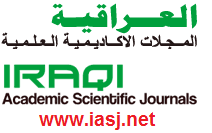Cold Cracking Technology for Crude Oil Upgrading in Qaiyarah Heavy Oil Field; Technical and Economical Evaluation
DOI:
https://doi.org/10.31699/IJCPE.2023.1.5Keywords:
Cold cracking; Qaiyarah heavy oil field; heavy crude upgrading; synthetic oil; oil production cost.Abstract
Heavy oil is classified as unconventional oil resource because of its difficulty to recover in its natural state, difficulties in transport and difficulties in marketing it. Upgrading solution to the heavy oil has positive impact technically and economically specially when it will be a competitive with conventional oils from the marketing prospective. Developing Qaiyarah heavy oil field was neglected in the last five decades, the main reason was due to the low quality of the crude oil resulted in the high viscosity and density of the crude oil in the field which was and still a major challenge putting them on the major stream line of production in Iraq. The low quality of the crude properties led to lower oil prices in the global markets as well as the high operation cost of production and transportation. The purpose of this paper is testing new technology applications on an Iraqi Heavy Oil Field and specifically (Qaiyarah Oil Field) by applying the cold cracking technique to upgrade Qaiyarah heavy oil properties through using series of electrical/ mechanical activities applied on the heavy crude that generates special kind of vibrations to re-structure the (H-C) bonds in the heavy oil to convert it to lighter crude with lower viscosity/ density which was the outcome of the distillation by reducing the unsaturated components and isolating the minerals and sulfur as sold components. The results were very optimistic, where the density has improved from 16 to 30.5 API degree, sulfur content has reduced from 6.4 to 1.507 weight percent and selling price per barrel would increase by 53% compare to 2.31% cost increment due to the upgrading operation. Therefore, applying the cold cracking technology is convenience for improving Qaiyarah oil properties as the main production stream line will be increased in Iraq.
Received on 26/07/2022
Received in Revised Form on 27/08/2022
Accepted on 31/08/2022
Published on 30/03/2023
References
D. Wang, L. jin, Y. Li. Hu. Upgrading of Heavy Oil with Chemical Looping Partial Oxidation. Energy Fuel, 2019, pp. 256 – 270.
Li, D., The History and Future of India Oil and Gas, 2005, https://doi.org/10.2523/IPTC-10121-MS.
Zhao, F. et al., A review on upgrading and viscosity reduction of heavy oil and bitumen by underground catalytic cracking 2021. Energy Reports, Volume 7, pp. 4249—4272, https://doi.org/10.1016/j.egyr.2021.06.094.
Rahnema, H., Barrufet, M. & Mamora, D. D., Combustion assisted gravity drainage--Experimental and simulation results of a promising in-situ combustion technology to recover extra-heavy oil., 2017. Journal of Petroleum Science and Engineering, Volume 154, pp. 513—520, https://doi.org/10.1016/j.petrol.2017.01.044.
Ibatullin, R., Ibragimov,. N., Khisamov, R. & Zaripov, A. T., Problems and solutions for shallow heavy oil production, 2012, https://doi.org/10.2118/161998-MS.
A. A. Abdulrazak, M. Al-Khatieb, and H. A. Faris, “Problems of Heavy Oil Transportation in Pipelines and Reduction of High Viscosity”, IJCPE, vol. 16, no. 3, pp. 1–9, Sep. 2015.
H. Q. Hussein and Z. A. Khedheer, “Study the Effect of Using Microwave Radiation and H-Donors on Improving Heavy Oil”, IJCPE, vol. 18, no. 4, pp. 1–13, Dec. 2017.
H. Qasim Hussein and S. Abdul-wahhab Mohammad, “Viscosity Reduction of Sharqi Baghdad Heavy Crude Oil Using Different Polar Hydrocarbons, Oxygenated Solvents”, IJCPE, vol. 15, no. 2, pp. 39–48, Jun. 2014.
Ministry of Oil – Iraq. Annual Statistical Report,2017.
A.A.M. Aqrawi, J.C. Goff, A.D. Horbury and F.N. Sadooni “THE PETROLEUM GEOLOGY OF IRAQ”, 2017.
John Dwyer and David Rawlence, “Fluid Catalytic Cracking Catalyst with heavy residual feedstocks”. Volume 18, Issue4, Pages 487-507, December (1993), https://doi.org/10.1016/0920-5861(93)80065-9.
PRESTIC Company Presentation., 2018., Presented at Ministry of oil/Iraq.
Ado, M. R., Simulation study on the effect of reservoir bottom water on the performance of the THAI in-situ combustion technology for heavy oil/tar sand upgrading and recovery., 2020., SN Applied Sciences, Volume 2, pp. 1—16, https://doi.org/10.1007/s42452-019-1833-1.
M. Ghashghaee, S. Shirvani, S. Kegnaes. steam catalytic cracking of fuel oil over a novel composite nano catalyst. J. Anal. Appl. Pyrol. 138, 2019, pp. 280 – 294, https://doi.org/10.1016/j.jaap.2019.01.010.
Jun Long and Deguang. Zu., HEAVY OIL UPGRADING WITH MINIMAL INVESTMENT COST Research Institute of Petroleum Processing, SINOPEC., 2020.
Carrillo J.A., Corredor L.M. Upgrading of heavy crude oils: Castilla. Fuel Process. Technol., 109 (2013), pp. 156-162, https://doi.org/10.1016/j.fuproc.2012.09.059.
Downloads
Published
Issue
Section
License
Copyright (c) 2023 Iraqi Journal of Chemical and Petroleum Engineering

This work is licensed under a Creative Commons Attribution-NonCommercial 4.0 International License.












